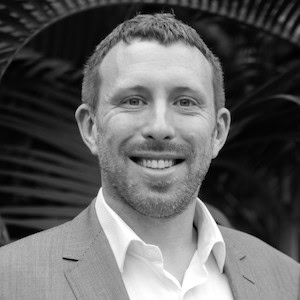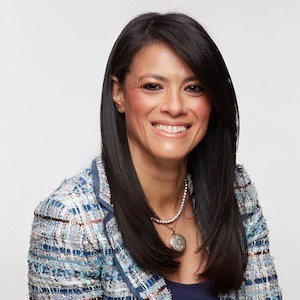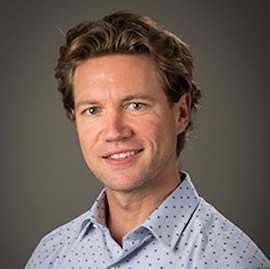-
Reshaping Africa’s Food Systems: Three Opportunities to Drive Sustainable, Inclusive and Scalable Impact
Africa's agricultural sector is plagued by low yields, fragmented value chains and a large finance gap, and the region is home to 60% of the world’s uncultivated arable land. As Neil Wood, Oscar Garza and Hanna Dohrenbusch at Open Capital explain, these challenges have brought the sector to a critical juncture. They share three key solutions based on Open Capital's work on 450+ agriculture and food systems projects across Africa, which have the power to help drive the future of agriculture on the continent in the decades to come.
- Categories
- Agriculture, Energy, Environment, Investing, Technology
-
The Emergence of ‘Resilience Credits’: How a New Asset Class Can Unlock Investment in Climate Resilience — And Why Impact Measurement Will be Key to its Success
Investments in building climate resilience in vulnerable communities are falling woefully short — and the private sector is almost entirely absent. Rania A. Al-Mashat, Egypt’s Minister of International Cooperation, Jyotsna Puri at IFAD and Jonathan Phillips at Duke University explore an innovative solution to this finance gap: “resilience credits.” They explain how this new asset class aims to align public and private capital to build and measure climate resilience — and discuss the pros and cons of different impact measurement approaches for resilience-focused projects and businesses.
- Categories
- Environment, Investing
-
From Proxy IDs to Autonomous Payments: Why the Future of Financial Services is Hyper-Efficiency
Despite the rise of digital banking and other technological advancements, financial services are still plagued by significant inefficiencies. Author and serial entrepreneur Arunjay Katakam explores the causes and consequences of these inefficiencies — including their impact on lower-income customers — and discusses some emerging innovations that are addressing them. He explains why the sector's growing efforts to streamline back-end processes, reduce transaction costs and enhance operational efficiency will be pivotal in shaping the future of financial services.
- Categories
- Finance, Technology
-
Reimagining Enterprise Support and Advisory Services for Energy SMEs: Five Principles for Boosting their Impact in the Global South
Over 675 million people still lack access to electricity (as of 2021) — over 80% of whom live in sub-Saharan Africa. As Godfrey Simiyu Katiambo at Mercy Corps Energy4Impact explains, bridging this energy gap in an equitable, sustainable manner will require not only a massive increase in funding, but also targeted support for the small-and-medium enterprises (SMEs) that are advancing clean energy access in underserved communities. He explores the growing need for enterprise support and technical and business advisory services that cater to these SMEs' unique challenges, and proposes five ways to boost the impact of these services.
- Categories
- Energy, Environment
-
Driving the EV Transition in LMICs: How Low- and Middle-Income Countries Can Accelerate the Adoption of Electric Vehicles
Amid mounting climate concerns, public health issues and economic challenges, the case for low- and middle-income countries (LMICs) to transition to electric vehicles (EVs) is compelling. Based on the strategies adopted by numerous countries, including many pioneer LMICs, Daphnée Benayoun, Kiran Willmot and Debashish Roychoudhury at Dalberg share four priority drivers that governments should consider to accelerate and manage their EV transition.
- Categories
- Energy, Environment, Technology, Transportation
-
NextBillion’s Most Influential Articles of 2023: Announcing the Three Winners of our Annual Contest
As 2024 gets underway, we'd like to announce the results of NextBillion’s annual “Most Influential Article of the Year” contest. This year's contest featured a strong slate of articles, covering a diverse array of topics ranging from systems change to decarbonization, in sectors that included energy, agriculture, finance and more. We've highlighted the three winners, as selected by our readers, in this article.
- Categories
- Agriculture, Energy, Environment, Finance, Investing, Social Enterprise, Technology, WASH
-
Announcing NextBillion’s Most Influential Articles of 2023: Cast Your Vote in our Annual Contest by Jan. 7!
As 2023 draws to a close, it’s time for NextBillion’s annual tradition: our “Most Influential Articles of the Year” contest. As we've done since 2012, we've selected 12 of our most-read articles from the past year, inviting readers to vote for the ones that influenced their thinking the most. You can vote multiple times — up to once per hour — during the voting period, which will run from Dec. 22 to 11:59 pm on Jan. 7. Best wishes for a healthy and prosperous new year!
- Categories
- Agriculture, Energy, Environment, Finance, Investing, Social Enterprise, Technology, WASH
-
The Graduation Approach isn’t Just for Extreme Poverty: An Innovative Project Leverages it to Rebuild Livelihoods After Forced Relocation
The Graduation Approach is a proven way to sustainably build the livelihoods of people living in extreme poverty. But as Anton Simanowitz at Social Performance Solutions explains, it is also being leveraged in contexts that go beyond poverty alleviation. He discusses one such application, exploring a pilot program that used the Graduation Approach to rebuild livelihoods in a community that experienced forced relocation due to mining activities.
- Categories
- Energy, Environment










